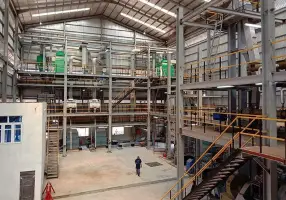Business owners, banks, and manufacturers are set to lose hundreds of billions of Naira as a 25-day blackout begins in Nigeria's commercial nerve centre, Lagos State, and parts of Ogun State.
Ikeja Electric and Eko Electricity Distribution Company announced on Friday last week that Lagos and part of Ogun State (Agbara) would experience extended power outages starting July 28 through August 21, 2025.
According to Eko DisCo's statement, "The outage will occur between 8:00 a.m. and 5:00 p.m. each day, affecting several parts of Lagos and other serviced areas." This covers standard working hours, significantly impacting business operations.
Both distribution companies explained that the outage is necessary due to maintenance work on the Omotosho–Ikeja West 330 kV transmission line by the Transmission Company of Nigeria (TCN).
Economic Impact on Nigeria's Commercial Hub
Lagos State, which hosts the majority of Nigeria's businesses with an estimated N13 trillion spent monthly on electricity bills according to the Commissioner for Energy and Mineral Resources, Mr. Biodun Ogunleye, will be severely affected.
Ikeja Electric and Eko DisCo are Nigeria's electricity distribution companies with the highest share of power supply from the National Grid. According to the Nigerian Electricity Regulatory Commission's first-quarter 2025 report, the two DisCos collected the highest revenue of N101 billion and N105 billion, respectively.
The outage is expected to result in a significant drop in revenue for the DisCos and further worsen the liquidity crisis in the country's power sector.
Expert Analysis on Business Implications
Dr. Muda Yusuf, Chief Executive Officer of the Centre for the Promotion of Private Enterprise (CPPE), told BenriNews that the cost implications of the blackout will be enormous for business owners, residents, and the Nigerian economy at large.
"The cost of the proposal to shut down the supply to the grid for maintenance will be enormous. The implication is that businesses that rely on the grid for supply will now have to shift to alternative sources of power. So we are likely to see significant pressure on energy costs for businesses in this period," Yusuf explained.
He highlighted that businesses that cannot afford to shut down, such as hotels, hospitals, supermarkets, and some manufacturers that operate 24 hours, will be particularly affected. "Generally, even with the complaint of high tariffs, using the power sources from the grid is cheaper than alternative sources of power like diesel or gas," he added.
According to Yusuf, the financial impact "will run into hundreds of billions of Naira" given Lagos's position as the commercial nerve centre of the country that consumes a substantial part of the power generation from the grid.
Necessary Sacrifice for Long-term Improvement
Despite the significant economic impact, Yusuf acknowledged that the maintenance is necessary for the long-term improvement of Nigeria's power infrastructure.
"We have been complaining about the quality of the National Grid, so if the government, through the TCN, is now committed to maintaining it and strengthening the capacity of the grid, I think it is a sacrifice that needs to be made," he stated.
He described the grid as "one of the weakest links in the power supply chain" due to poor investment, maintenance, and aging facilities, which have resulted in numerous grid collapses over the years.
"The decision to maintain it is commendable, but the effect on business is enormous. But it is a sacrifice worth making at this time," Yusuf concluded.
Stay updated on this developing story by following BenriNews on our social media platforms: Facebook, Twitter, LinkedIn, WhatsApp, and Telegram.













